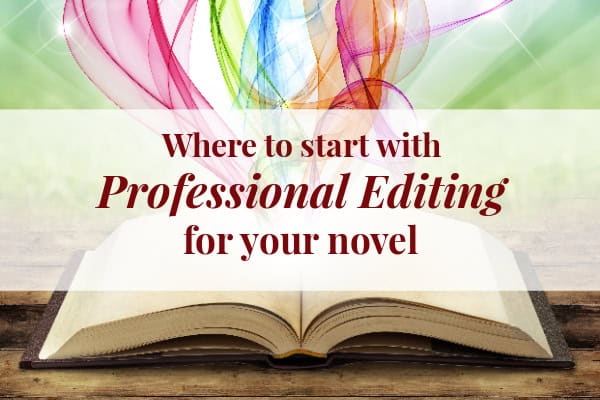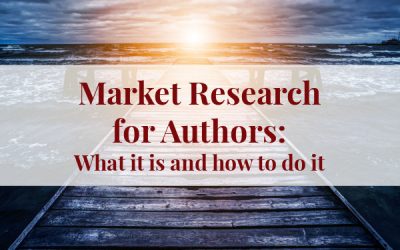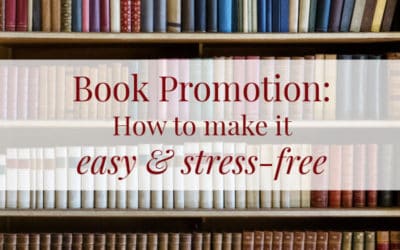Where Should You Start the Editing Process?
First of all, do you even need an editor?
As the author of your book, you know what you intended to write. So as you read your manuscript, your subconscious automatically fills in your intended meanings, including both what you conveyed through your writing and what you forgot to include or didn’t make clear enough.
And that’s why even the best writers need editing if they want to publish a high-quality novel.
Editing Improves Quality
So the question of whether you need an editor is a question of how much you care about quality.
Are you just writing for fun? Then maybe you don’t need an editor. There are ways to publish your stories online where people can read them for free, and in those situations nobody expects your work to be top quality.
When you’re charging people to read your story, there’s a higher expectation of good writing and storytelling.
So if earning money is part of your plan, professional editing is a good idea. It will make you more successful as an author and help your readers feel that you gave them good value for their money.
Novel Editing Can Get Expensive
Editing is easily the largest financial investment of writing a book.
This is true whether you choose to self-publish or get published traditionally.
Yes, a traditionally published book will be edited by the publisher. But it’s difficult to find a publisher to begin with, so it’s common for authors to get some kind of professional editing before querying.
If you’ve concluded that you do need an editor, it’s important to know what type of editing you need so you can avoid wasting money on the wrong things.
Save Money by Starting with the Story
I recommend that most authors aiming for traditional publishing focus on story editing, also called developmental editing or structural editing.
This means editing that improves your manuscript on a story level, focusing on things like characters, plotlines, and settings.
Improving the story will make a bigger difference to increase your chances with agents and publishers than improving things like grammar and punctuation.
Saving Money with a Manuscript Evaluation
If you aren’t sure how much story editing you need or are on a limited budget, it’s best to start with a manuscript evaluation. This provides similar big-picture story feedback but with less detail and for a more affordable price.
And if your story needs more editing than you thought, manuscript evaluation does an excellent job preparing your novel for more in-depth story editing. A developmental edit will give you more value for your money and bring the story to a higher level if you have already gotten a manuscript evaluation.
I use story editing as an umbrella term that includes both in-depth developmental editing and less detailed manuscript evaluation. Most authors need some kind of story editing, but specific needs will vary based on your budget and how much work you put into the story prior to finding an editor.
Copyediting Goes After Story Editing
Self-publishers often need both story editing and copyediting. And it’s important to get them in that order.
(Proofreading, a final check for stray errors, goes at the very end.)
Story editing will make sure that the manuscript does in fact tell a story, and it will help you make that story more compelling. If the plot isn’t working or your readers can’t understand and connect with your characters, this can damage the reader’s experience.
So if a manuscript has story issues, copyediting may not be enough to make readers love the book. Most authors need some kind of story editing.
How Copyediting Improves the Reader’s Experience
Copyediting polishes your prose and fixes writing errors and inconsistencies.
This can significantly improve the reader’s experience since spelling and punctuation errors can be distracting at best, and prevent readers from understanding you at worst.
But if you need story editing as well, that must come first. If the copyediting is done before the story editing, the manuscript is likely to need additional copyediting for any text that was rewritten during revisions.
So editing in the wrong order can overwrite the editor’s prior work and waste the money you spent on it.
How Many Edits Does a Manuscript Need?
It’s important to remember that there’s a limit to how much an editor can do in just one edit.
So the better your manuscript is to begin with, the greater the chances that just one or two rounds of editing will get your novel to the quality level you’re hoping for.
Editing to Save Time
If you have a higher budget and want to save time, you could consider multiple rounds of each type of editing.
This would cost more, but you would spend less time on revisions because the editor would show you the most important issues to fix at each stage.
Editing to Save Money
If you have a limited budget, it will be important to learn as much as you can about storytelling and bring your manuscript to the highest level you can prior to working with an editor.
This will make the edit faster and cheaper in addition to helping it fix a higher percentage of the manuscript’s problems.
So when you decide to get professional editing, make sure you get the right type of editing for your manuscript and your budget, and make sure you get each type of editing at the right time:
Do your own revisions, then get story editing, and then copyediting.





